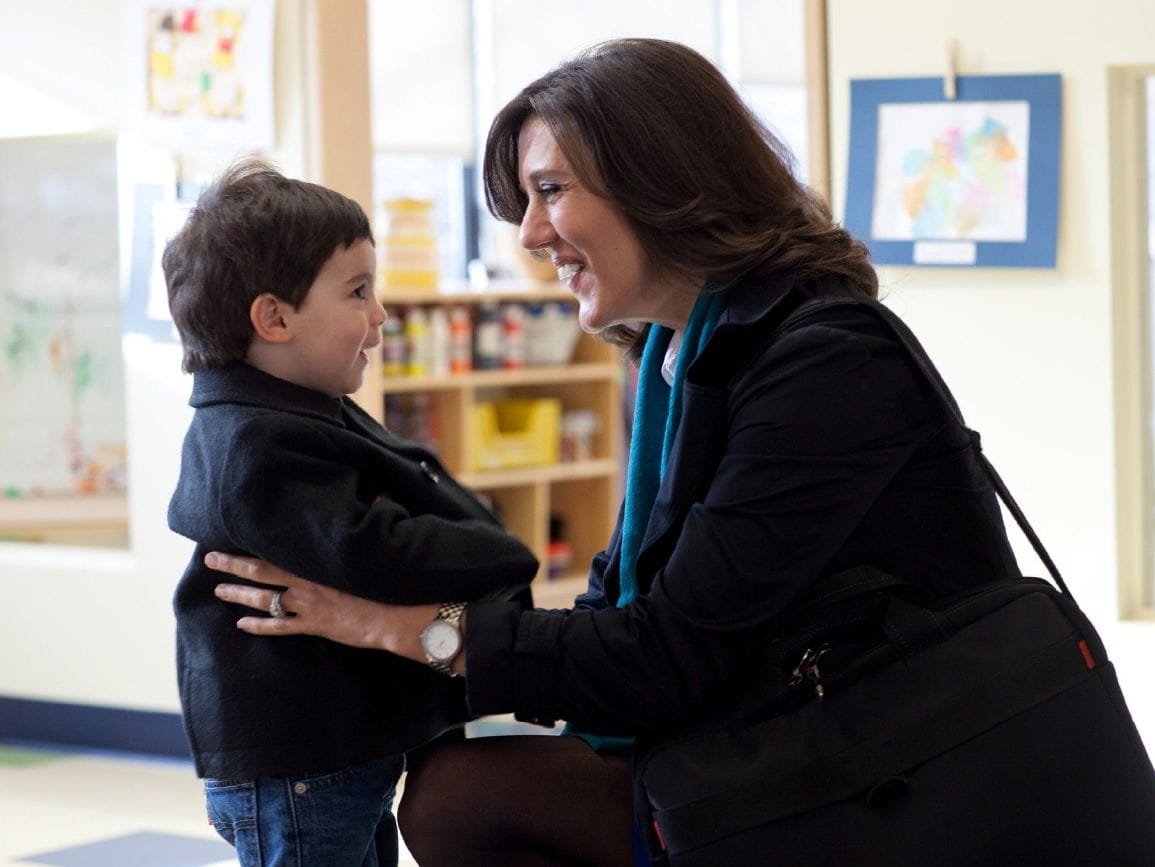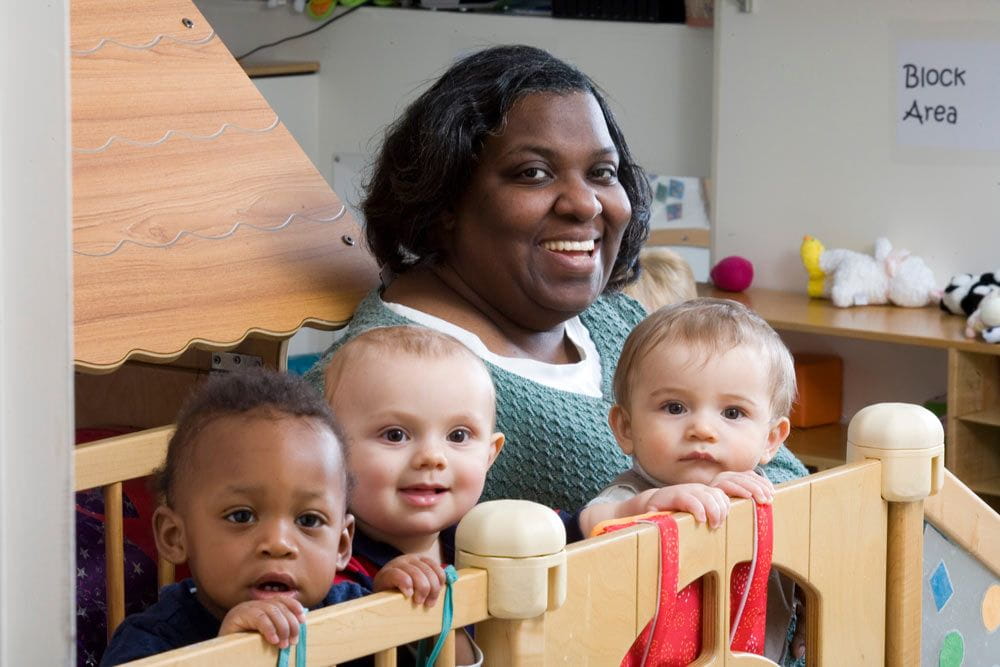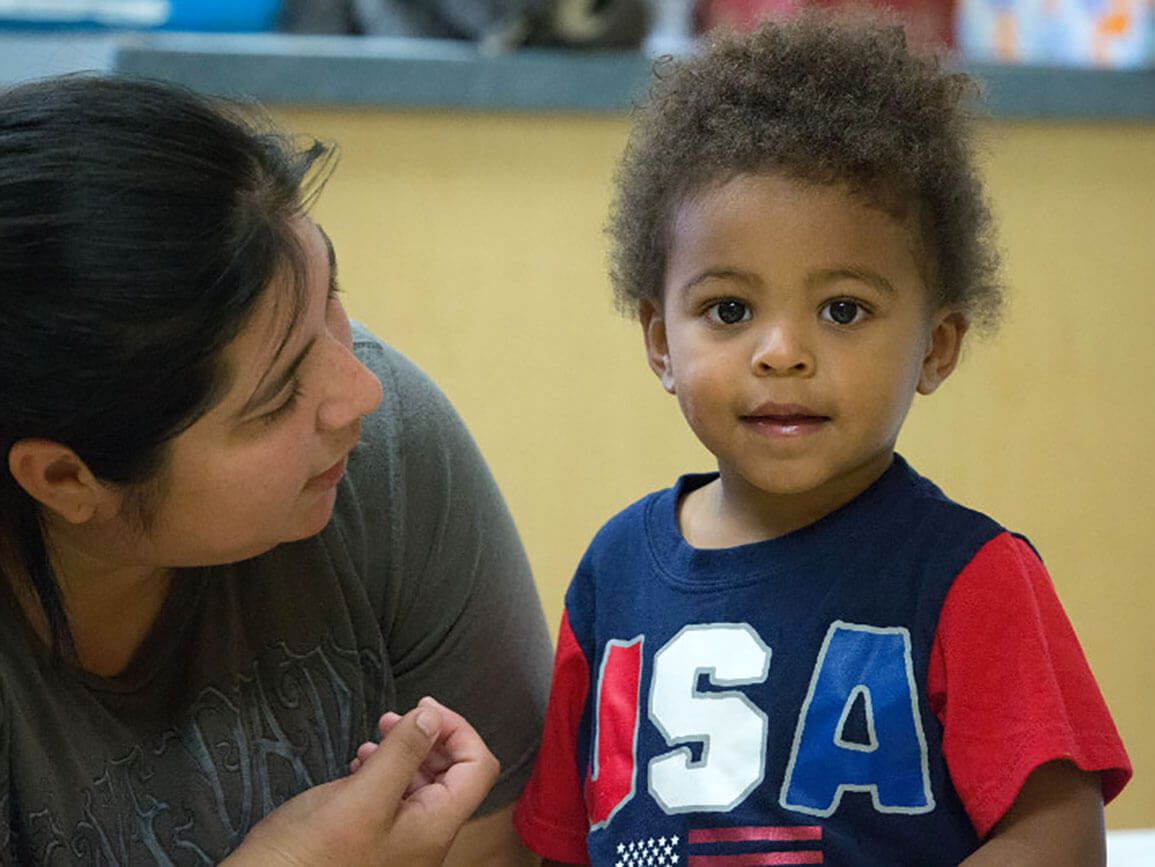While observing child-parent interactions in the 1960s, researcher Diana Baumrind noted patterns of parenting behaviors she classified as authoritarian, permissive, uninvolved, and authoritative parenting styles. An authoritarian parenting approach is a top-down style in which the parent is always the boss. Discipline is often harsh and connection low. In a permissive parenting dynamic, parents are often hesitant to set boundaries or create expectations that might lead to conflict. Discipline is inconsistent and connection is also low.
The authoritative parenting style takes a more balanced approach. Parents are neither bosses nor best buddies, but guides and mentors. Children are seen as capable people worthy of respect and focused interaction. Parents communicate their expectations clearly, but also allow for collaboration and discussion.
What does authoritative parenting look like?
- High expectations for children’s growth and behavior
- Fair, consistent rules and consequences designed to encourage a child’s own self-regulation and critical thinking
- Predictable follow through
- High parental engagement and presence
- High levels of emotional support and nurturing
- Parents view children as capable of growth and development through trial and error: mistakes are seen as opportunities
- Parents view their role as one of a guide and leader.
What are the benefits of authoritative parenting?
Discovery and development of self is one of the critical jobs of childhood. In the early years, this sense of self is based on feedback from the important people in children’s lives. An authoritative parenting style communicates the following critical messages to children:
- You are worthy of my trust, attention, and respect. I am interested in your feelings, thoughts, and experiences. I want to know what you have to say.
- I will set appropriate limits and consequences for you because I love you and I’m invested in your growth.
- I will keep you safe by setting limits until you are able to set limits for yourself (this process happens gradually over time as parents teach children skills).
Numerous studies have found that authoritative parenting lends itself to children who are confident and happy. These children tend to take responsibility for their actions and have fewer behavioral issues. Their sense of self is formed on a solid foundation of consistency, respect, and trust.
How do I practice authoritative parenting?
It sounds good, but the truth is, authoritative parenting is the most difficult parenting style to put into practice because it requires a high level of mindfulness and intention. During times of stress and fatigue, most of us tend to default to the parenting style we were raised with.
Becoming more authoritative in our parenting demands that we examine our views about children and our roles as parents. Are children as worthy of respect and value as adults? Is it my job as a parent to coerce or to guide? More specifically, how do I handle stressful situations, e.g., when my child dawdles, refuses to listen, or spills her food? How were these types of situations addressed when I was a child? What response feels fair and helpful?
To practice authoritative parenting, consider these points:
- Be prepared. Think ahead of time about how you’d like to respond to your children during stressful situations. Avoid making decisions about discipline in the heat of the moment. There’s nothing wrong with stepping away for time to think.
- Be clear and fair. When setting expectations, think about your child and his strengths or needs, rather than social norms. What does your child need right now to reach her potential? How will your expectations support her in that goal?
- Be present and involved. Have regular, meaningful conversations. Ask open-ended questions that require more than a “yes” or “no” answer, such as, “What was one thing that was hard at school today?” “What was one thing you felt good about at school?” Get to know your child’s friends and teachers. Sometimes a conversation opens without a question, but with merely an observation. “I saw you seemed you seem frustrated during soccer practice today.” This allows your child to speak if they wish, but also lets them know you are ready to talk when they are.
- Finally, keep trying. No parent is perfect. Most of us have days when we present less than our best to our families. The beauty of family life is that it provides an environment for us to grow, change, and learn.
Bright Horizons Parenting Webinar: Getting to Know Your Parenting Style
What is your parenting style? Parenting experts from ZERO TO THREE and Bright Horizons discuss the impact of temperament and style on the parent-child relationship and will help you reflect on your own unique approach to parenting.
Resources Related to Authoritative Parenting
- Learn more about the four Baumrind Parenting Styles.
- Subscribe to the Bright Horizons YouTube channel for more webinars and parenting tips.





